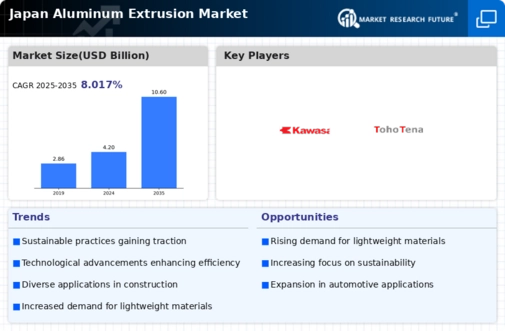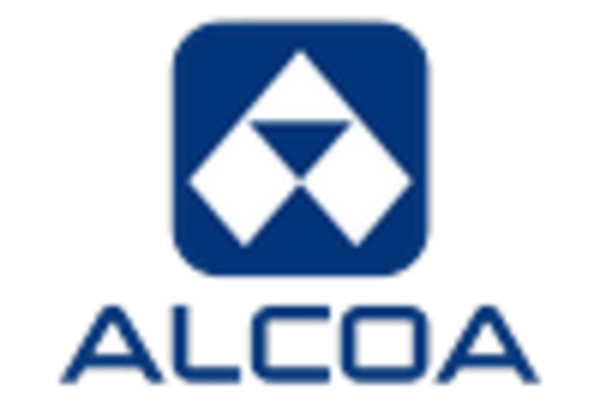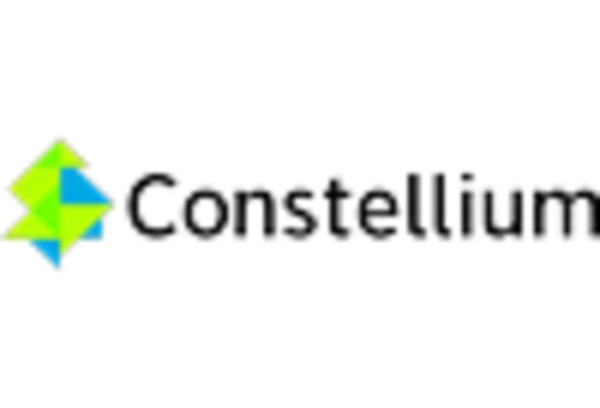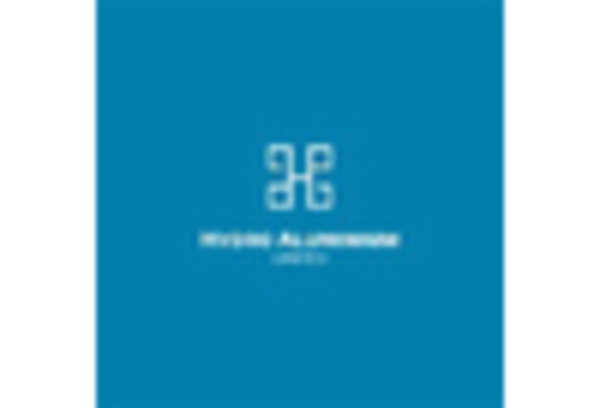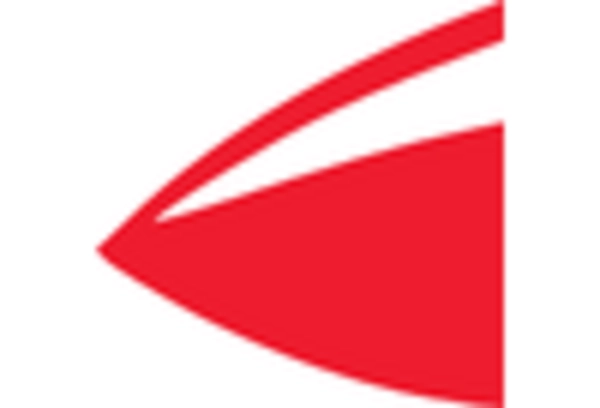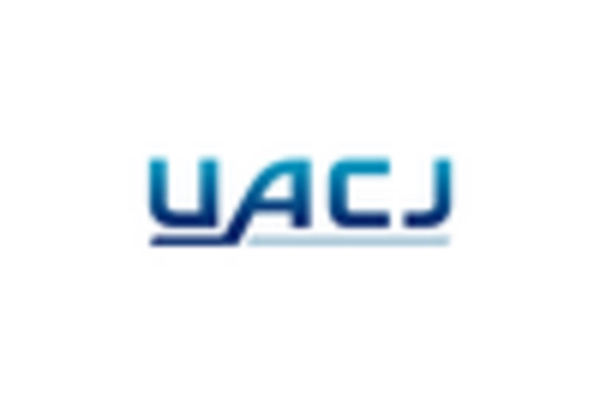The aluminum extrusion market in Japan is characterized by a competitive landscape that is both dynamic and multifaceted. Key growth drivers include increasing demand from the automotive and construction sectors, alongside a growing emphasis on lightweight materials for energy efficiency. Major players such as UACJ Corporation (JP), Alcoa Corporation (US), and Novelis Inc. (US) are strategically positioned to leverage these trends. UACJ Corporation (JP) focuses on innovation in product development, particularly in high-strength aluminum alloys, while Alcoa Corporation (US) emphasizes sustainability through its low-carbon aluminum production initiatives. Novelis Inc. (US) is enhancing its operational focus on recycling and circular economy practices, which collectively shape a competitive environment that prioritizes sustainability and technological advancement.In terms of business tactics, companies are increasingly localizing manufacturing to reduce lead times and enhance supply chain efficiency. The market structure appears moderately fragmented, with several key players exerting influence over specific segments. This fragmentation allows for niche players to thrive, while larger corporations optimize their supply chains and expand their regional footprints. The collective influence of these key players fosters a competitive atmosphere where innovation and operational excellence are paramount.
In October UACJ Corporation (JP) announced a strategic partnership with a leading automotive manufacturer to develop lightweight aluminum components aimed at enhancing vehicle fuel efficiency. This collaboration is significant as it not only reinforces UACJ's position in the automotive sector but also aligns with the industry's shift towards sustainability and reduced emissions. The partnership is expected to yield innovative solutions that could set new benchmarks in the market.
In September Alcoa Corporation (US) unveiled its latest initiative to produce aluminum using renewable energy sources, aiming to reduce its carbon footprint by 30% by 2030. This move is crucial as it positions Alcoa as a leader in sustainable practices within the aluminum sector, potentially attracting environmentally conscious clients and investors. The initiative reflects a broader trend towards sustainability that is becoming increasingly important in the competitive landscape.
In August Novelis Inc. (US) expanded its recycling capabilities by acquiring a state-of-the-art facility in Japan, which is expected to increase its recycling capacity by 50%. This strategic acquisition underscores Novelis's commitment to the circular economy and positions the company to meet the rising demand for recycled aluminum products. The expansion is likely to enhance Novelis's competitive edge by ensuring a steady supply of raw materials while reducing reliance on primary aluminum production.
As of November current competitive trends in the aluminum extrusion market are heavily influenced by digitalization, sustainability, and the integration of AI technologies. Strategic alliances are increasingly shaping the landscape, enabling companies to pool resources and expertise to drive innovation. The shift from price-based competition to a focus on technological advancement and supply chain reliability is evident. Companies that prioritize innovation and sustainability are likely to differentiate themselves in a market that is evolving rapidly.


